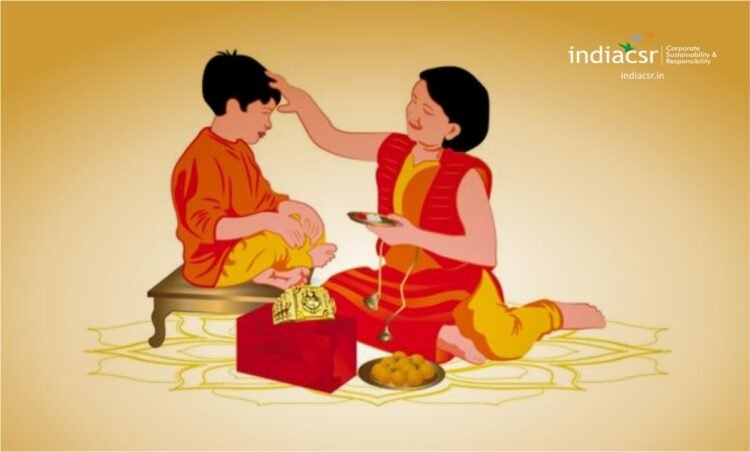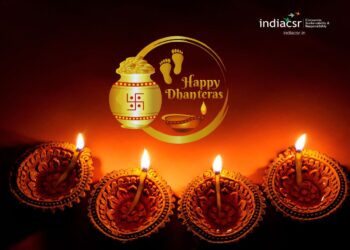Raksha Bandhan: A Festival of Love and Protection
Introduction
Raksha Bandhan, also known as Rakhi, is a Hindu festival celebrating the bond of love and protection between brothers and sisters. It is observed on the full moon day of the month of Shravana, which usually falls in August. On this day, sisters tie a sacred thread or amulet called rakhi on the wrists of their brothers, symbolizing their wish for their brothers’ well-being and happiness. Brothers, in turn, promise to protect and care for their sisters and give them gifts. Raksha Bandhan is not only a festival of siblings but also a festival of family and society, as it strengthens the ties of kinship and harmony.
Origin and Significance
The origin and significance of Raksha Bandhan can be traced back to various legends and historical events in Hindu mythology and culture. Some of the most popular ones are:
- According to one legend, Raksha Bandhan was started by Indra’s wife Sachi, who tied a sacred thread on Indra’s wrist to protect him from the demon king Bali during a war between the gods and the demons. Indra then defeated Bali and regained his kingdom.
- According to another legend, Raksha Bandhan was started by Draupadi, the wife of the Pandavas, who tied a piece of her saree to Krishna’s finger to stop his bleeding wound. Krishna then vowed to protect Draupadi from any harm and helped her during the infamous episode of cheer haran (disrobing) by the Kauravas.
- According to yet another legend, Raksha Bandhan was started by Rani Karnavati, the widowed queen of Chittor, who sent a rakhi to Emperor Humayun to seek his help against the invasion of Bahadur Shah. Humayun then honored the rakhi and rushed to defend Chittor.
- According to some historical accounts, Raksha Bandhan was also used as a political tool by some rulers and nobles to forge alliances and maintain peace. For example, Akbar’s wife Jodha Bai sent a rakhi to Maharana Pratap’s son Amar Singh to avoid a war between them. Similarly, Rabindranath Tagore used Raksha Bandhan as a symbol of unity and brotherhood among Hindus and Muslims during the partition of Bengal in 1905.
These legends and events show that Raksha Bandhan is not just a ritual of tying a thread, but a gesture of love, respect, trust, and loyalty between brothers and sisters. It also shows that Raksha Bandhan transcends the boundaries of blood relations and can be celebrated by anyone who shares a bond of affection and friendship.
Celebration and Customs
The celebration and customs of Raksha Bandhan vary from region to region, but some common elements are:
- On the morning of Raksha Bandhan, sisters prepare a thali (plate) with rakhi, roli (red powder), rice grains, sweets, diya (lamp), and incense sticks. They also dress up in new or traditional clothes and adorn themselves with jewelry.
- Brothers also dress up in new or traditional clothes and sit before their sisters. Sisters apply roli and rice grains on their brothers’ foreheads as tilak (mark) and tie rakhi on their wrists. They also offer sweets to their brothers and pray for their long life and prosperity.
- Brothers then give gifts or money to their sisters as a token of their love and gratitude. They also promise to protect and support their sisters in all circumstances. They also offer sweets to their sisters and bless them with happiness and success.
- Some families also perform aarti (ritual waving of lamp) before their brothers or exchange rakhi among cousins or friends. Some people also visit temples or perform puja (worship) at home on this day.
Some communities also have some special traditions associated with Raksha Bandhan. For example, in some parts of Rajasthan, women tie rakhi on the wrists of peepal trees or idols of Ganesha as a symbol of protection from evil forces. In some parts of Gujarat, women tie rakhi on the wrists of cows or bulls as a symbol of respect for nature. In some parts of Maharashtra, women tie rakhi on the wrists of coconut vendors as a symbol of gratitude for their service.
Conclusion
Raksha Bandhan is a festival celebrating the bond of love and protection between brothers and sisters. It is also a festival that celebrates the bond of family and society, as it strengthens the ties of kinship and harmony. Raksha Bandhan is a festival that reflects the values of Hindu culture, such as respect, trust, loyalty, gratitude, etc. Raksha Bandhan is a festival that brings joy, happiness, and peace to everyone who celebrates it.
Also Read:
- How to Celebrate Raksha Bandhan in America
- Happy Raksha Bandhan 2023: Best Quotes, Wishes, Images, and Whatsapp Status
- Raksha Bandhan 2023: Date, History, Significance, Celebration, and Importance Facts






















